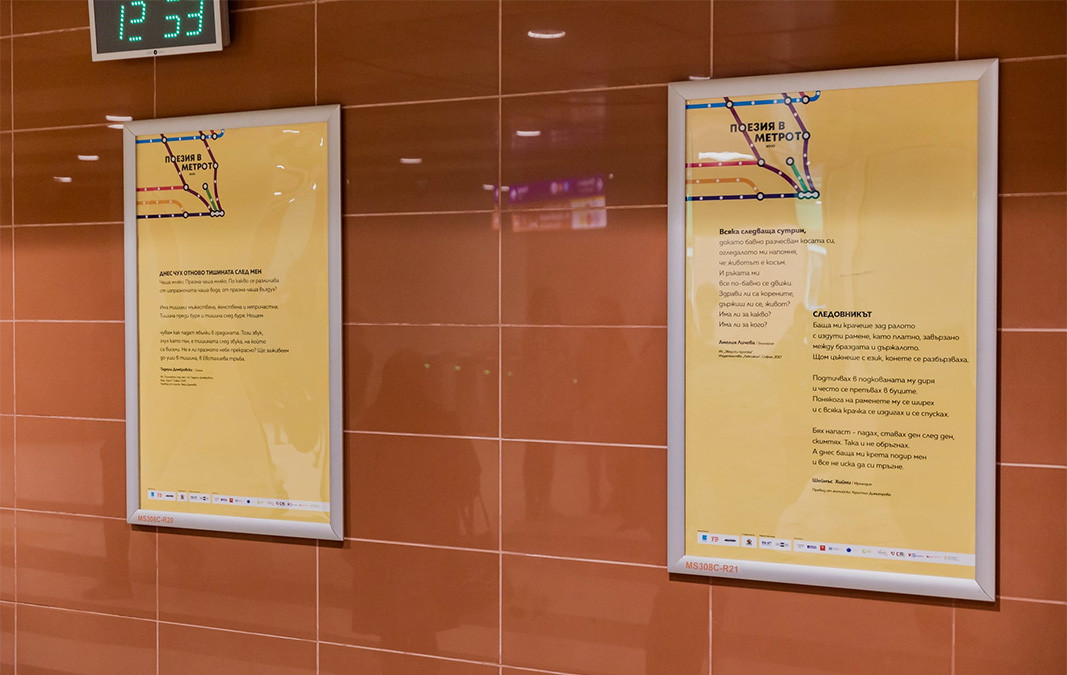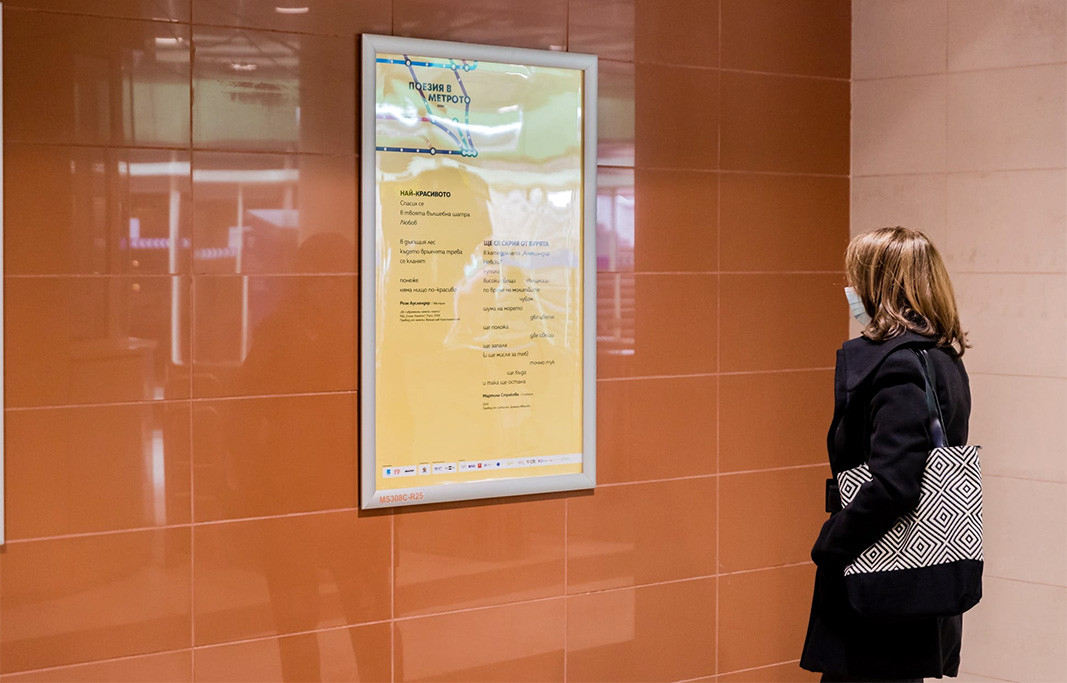Is there a place for poetry in our daily lives, surrounded by so many fears and limitations? The sixth edition of the Poetry in the Metro initiative seems to provide an answer to this question.
In the period November 8 to December 20, the Polish Cultural Institute in Sofia and the Literary Journal, in partnership with the Sofia Municipality, will once again bring us closer to the world of words and rhymes. Poems by 14 European authors in original and translated into Bulgarian will bring emotion and beauty to the trains and stations of the Sofia metro. For the first time such an initiative took place in Poland and caused great interest and thanks to the idea of the then director of the Polish Cultural Institute in Sofia, Yaroslav Godun,"Poetry in the Metro" also took place in Bulgaria back in 2015, together with EUNIC Cluster Bulgaria (network of the cultural centers of the countries of the European Union).
"Every year, the choice of works and authors is made by the cultural centers themselves," Pamela Kaczmarek, an associate at the Polish Cultural Institute in Sofia, has told Radio Bulgaria. “For us, as organizers, it is important that this is contemporary poetry of the XX and XXI century to show today's writers; those who are read now and are important for the participating countries. I sincerely hope that our project will not only make the metro trips more enjoyable, but will also elevate the mood of the passengers."

"Many Bulgarian and international authors have been presented over the years along with a very wide range of topics. That is how new readers have been attracted, which is one of the greatest merits of the project," Prof. Amelia Licheva, editor-in-chief of the "Literary Journal" has told Radio Bulgaria. Without a specific motto, what she sees as a thematic core in this year's selected poems is a more serious focus on everyday life and the present. “A wide range of topics are covered, as each reader can find something for themselves, as long as they raise their head up and look in front of them,” Prof. Licheva says.
Each year she and her team choose the author representing Bulgaria. This year they have unanimously chosen writer Petar Chuhov.
"Petar Chuhov is very interesting contemporary Bulgarian poet. He also writes short works, which is important for our choice as the verses must be striking and short, so that they can be perceived easily and quickly by people.“
It is a curious fact that Hungary participates in the initiative with a haiku by Akos Fodor, which has been translated in Bulgarian by Petar Chuhov himself. And the initiators of the project - Poland, will pay tribute to one of the most significant poets of the past century - Tadeusz Różewicz.

“What is new this year in the project is that in addition to poetry in Bulgarian and in 13 other European languages, animation films will be shown on the screens of the metro stations in the capital city. This is the work of graphic artist Anna Simeonova.”
Prof. Amelia Licheva is sure that even if you read just one poem while waiting for the next train, you will "get excited to read a little more, including poetry."
"In situations like today's one, which includes many crises, poetry is a way to find some answers for yourself," she says.
The Bulgarian National Radio and the Bulgarian National Television are media partners of the initiative.
English: Alexander Markov
Photos: Facebook / @polski.institut.sofiaRenowned soloists and ensembles are special guests at the 25th edition of the European Music Festival in Sofia, which began on March 12. The festival is organized by Cantus Firmus with the support of the Sofia Municipality and the Ministry of Culture...
An exhibition in memory of the great Bulgarian actor Georgi Partsalev, on the occasion of the 100th anniversary of his birth, opens today in the open-air gallery in the garden in front of the Ivan Vazov National Theatre. The exhibition "Don Quixote of..
They say that Divna Shalich Lafchieva was a woman with many homelands. Like the multifaceted nature of her soul, she was also a woman with many vocations. But the most important thing is that from the paths she has left her..
A pianist and conductor with a world-class career, Ivan Yanakov has been performing on several continents..

+359 2 9336 661
